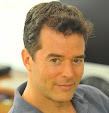The world is big and life is short. We've solved this problem.
To restate the problem: in our short lives, we are unlikely to ever find the people and things that we would most enjoy and appreciate. This is unfortunate.
Have you been feeling the pain? Not finding your soulmate? No best buddies? Have the suspicion that the most incredible music is out there, somewhere? Feel like you never found your ideal vocation? Actually there is little chance you could have found the optimal things in life. As I mentioned in a previous post, it would take us thousands of years to meet every other human, listen to every song, read every book, evaluate every vocation, etc.
Many of us have grown to accept our mortality, and the tyranny of time. We've had to accept the limitations in the time we have to explore options and find those optimal things. This acceptance has silenced our normally inquisitive and innovative inclinations to find solutions to problems; it seems an insurmountable problem, and, frankly, dwelling on mortality is not entirely pleasant. Those who haven't accepted mortality will deny the existence of the problem and thus the need for a solution.
I didn't set out to solve the 'short life' problem. Actually, that's not entirely true - I'm a huge health and nutrition nut: I plan to be healthy to at least age 120. But in this post, and in this project, I'm not talking about extending human lifespan. It is the 'big world' problem that we are addressing, and the problem may not be so big after all. The innovation came first, and then it occurred to me that the thousands of years it would take to find your favorites could be compressed significantly.
I'll use the analogy from a previous post. Many of us receive hundreds of emails every day. Without an email filter, it would take us hours to sort through and pick out the emails we prefer. We don't have enough time to perform this task, nor would we want to. The email filter, if it works well, presents to you only those emails that you are most likely to prefer. Reviewing your emails becomes a much quicker and simpler task. Information overload is reduced.
In a similar way, our discovery engine sorts through thousands of years of people, media, opportunities, ideas, causes, products, etc, and presents to you only those things you are most likely to prefer.
So you need no longer fear your own mortality. :-)

No comments:
Post a Comment